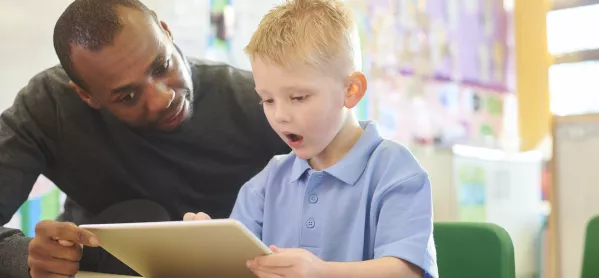Revealed: Two month reading and maths “Covid-19 gap”

Primary pupils are lagging two months behind in reading and maths owing to learning lost during the Covid crisis, new research shows.
And disadvantaged pupils are seven months behind their peers in both subjects, according to a study published today by the Education Endowment Foundation (EEF).
The research, based on data collected by the National Foundation for Educational Research (NFER), found that key stage 1 pupils’ achievement in reading and maths was, on average, “significantly lower” as a “likely result of missed learning”.
Cost of Covid: Teachers’ grim figures on learning loss
Exclusive: Tests reveal ‘dramatic’ GCSE learning loss
Boris Johnson: Schools to get further £300m for catch-up tutoring
The findings are based on assessments in reading and maths taken in November last year by nearly 6,000 Year 2 pupils, in 168 representative primary schools.
These were compared with tests taken by Year 2 pupils in the autumn of 2017, also from a representative sample of schools.
“This study confirms that, following the disruption to schooling in the 2020 spring and summer terms, Year 2 pupils had significantly lower achievement in both reading and maths in autumn 2020 when compared to performance seen in Year 2 in the autumn term of 2017,” the report concluded.
“This represents a Covid-19 gap of around two months’ progress for both reading and maths.”
And “a large number of pupils were unable to engage effectively with the tests”, the report said.
The study also found that there was a “large and concerning attainment gap between disadvantaged pupils and non-disadvantaged pupils”.
For both reading and maths, this gap was estimated to be the equivalent of seven months’ learning.
“It seems that the disadvantage gap is wider than earlier estimates and will likely be further exacerbated by school closures in early 2021,” the report said.
But the EEF said it was not possible to deduce whether the gap had increased since 2017, as the previous data “did not compare the performance of disadvantaged pupils with all other pupils”.
The findings are part of an ongoing EEF study into the pandemic’s impact on learning, with further analysis to be carried out in March and June 2021 “to examine whether the gap narrows, widens or remains stable”.
The NFER is also preparing a short publication for teachers that will include “more detailed commentary on pupils’ responses and suggestions that schools can act upon”.
Sir Peter Lampl, founder and chair of the Sutton Trust and chair of the EEF, said: “By the time schools reopen, children and young people will have faced almost a year of learning disruption. The repercussions of these months of lost learning are devastating and will be felt for a lifetime, especially by those from low-income backgrounds.
“Today’s findings give valuable insight into the challenges facing schools and teachers. Vast resources need to be targeted at disadvantaged pupils by raising the pupil premium significantly and providing funding for tuition.”
Ben Styles, head of the NFER’s Education Trials Unit, said: “There has been a lot of speculation about the extent to which children may have fallen behind and it is valuable to report some attainment data on this question.
“Measuring gaps in test scores is not much use to teachers without more diagnostic information concerning where children have fallen behind, and we hope to provide this imminently.”
The Department for Education has been approached for comment.
Register with Tes and you can read two free articles every month plus you'll have access to our range of award-winning newsletters.
Keep reading with our special offer!
You’ve reached your limit of free articles this month.
- Unlimited access to all Tes magazine content
- Save your favourite articles and gift them to your colleagues
- Exclusive subscriber-only stories
- Over 200,000 archived articles
- Unlimited access to all Tes magazine content
- Save your favourite articles and gift them to your colleagues
- Exclusive subscriber-only stories
- Over 200,000 archived articles